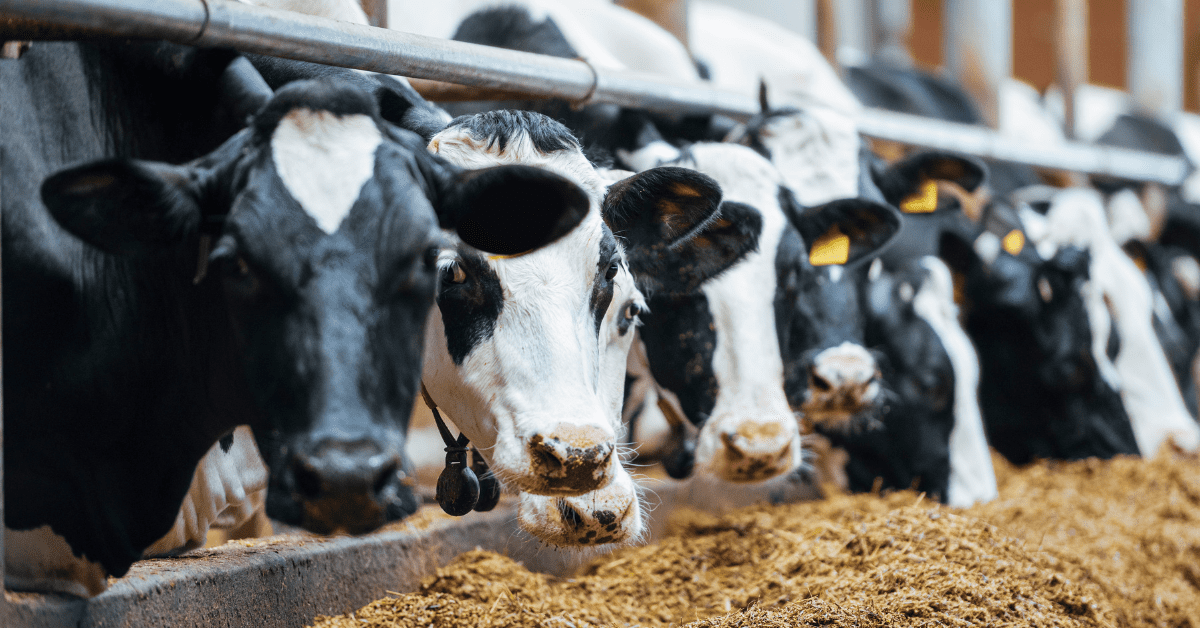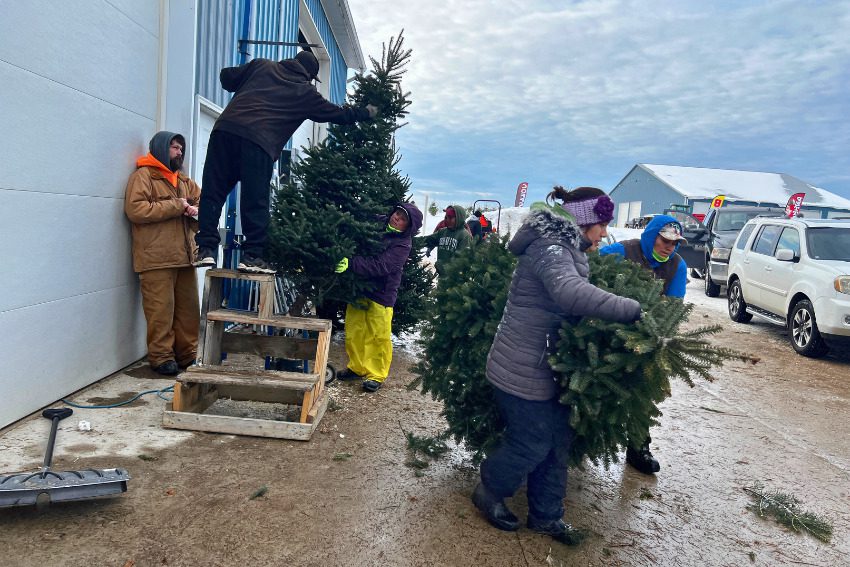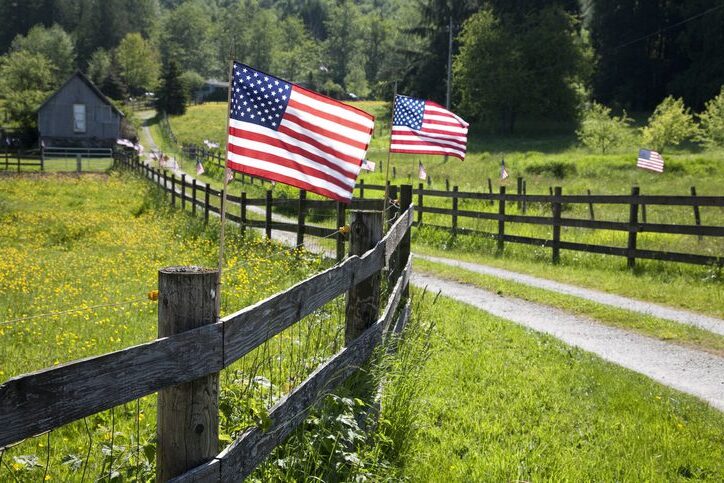
State regulators want to crack down on pollution at large livestock farms to better protect the state’s water, but farmers think regulators are overstepping their authority.
MICHIGAN—State regulators are cracking down on pollution from large livestock farms. But some Michigan farmers contend that state regulators may have overstepped their authority.
The dispute will now be settled by the Michigan Supreme Court—and the ruling could carry significant implications for how regulators go about protecting clean water across Michigan.
Here’s the deal:
Amid efforts to strengthen clean water regulations in 2020, the Michigan Department of Environment, Great Lakes, and Energy (EGLE) tightened its rules for how large, concentrated livestock or animal feeding operations—known as CAFOs—could dispose of animal waste.
The latest state guidelines limit the amount of phosphorus that farmers can apply to their land, increase monitoring requirements, ban winter waste application, and require CAFOs to avoid spreading animal waste within 100 feet of sources of surface water, reports the Detroit News.
The big idea: Curb pollution from manure runoff at nearly 300 CAFOs operating across Michigan—which have expanded threefold in Michigan since the turn of the millennium and now generate hundreds of millions of tons of solid manure annually, Bridge Michigan reports.
What do regulators have to say for themselves?
Thousands of animals packed into one farm produce a lot of waste every year—the volume of “more than 24-and-a-half Deepwater Horizon spills every year,” state officials have contended.
And it’s not just poop being spread onto fields.
Livestock waste (both urine and feces) can also be filled with various pharmaceuticals, hormones, heavy metals, and nutrients like phosphorus and nitrogen that often run off farmland and into nearby surface water to cause widespread pollution, Interlochen Public Radio reports.
Attorneys for EGLE and several environmental policy groups—including For the Love of Water—have argued that the new permit requirements for CAFOs didn’t go far enough, and that state regulators must be allowed to move quickly to mitigate urgent environmental threats.
State lawyers have also argued that EGLE had both a right and a duty under the state’s Natural Resources and Environmental Protection Act to better control farm pollution, Bridge reports.
What are farmers saying?
The new rules—which apply only to the largest farms in Michigan—impact fewer than 300 of the 47,000 farms across Michigan. But not all farmers were on board with the tighter regulations.
In 2020, the Michigan Farm Bureau (and other farmers) filed a lawsuit alleging that state regulators had overstepped their legal authority by enacting stricter pollution regulations without first going through a lengthy rulemaking process with public hearings and legislative approval.
Some farmers have also said the rules—which mandate maintaining grassy buffers along surface water bodies and ban spreading manure from January through March—are too costly.
One farmer told Bridge Michigan that he feared being “regulated out of business.”
What happens now?
The case has been bouncing around courtrooms for longer than two years. In 2022, the Michigan Court of Appeals sided with the Michigan Farm Bureau, prompting the state to file another appeal to the state Supreme Court, which decided to take up the case this year.
EGLE has reportedly volunteered not to enforce the regulations until the dispute is settled.
The state Supreme Court could decide this year whether EGLE’s permit requirements meet the definition of a “rule” change, which would require them to go through a much more intensive rulemaking (and public hearing) process before they can take effect, reports the Detroit News.
What’s at stake?
Environmental activists have said that a ruling in favor of the Farm Bureau would essentially force the state to rethink how it goes about enforcing environmental rules to prevent pollution and pave the way for other polluting industries to make similar arguments in future lawsuits.
The state reportedly issues similar pollution permits to a host of other industries and updates requirements as needed. If every significant update must go through rulemaking, pollution could fester while EGLE waits for permission to act, an attorney for the Environmental Law and Policy Center explained to Bridge Michigan.
In addition to rendering EGLE powerless to rein in pollution at large livestock farms, a ruling against the state could also open the door for other industries to challenge EGLE’s water quality rules, which regulators have said would force them to “sit by and watch the waters get polluted.”
READ MORE: Farmers call for ‘safety net’ after toxic sludge sinks Michigan cattle farm
For the latest Michigan news, follow The ‘Gander on Twitter.
Follow Political Correspondent Kyle Kaminski here.
Support Our Cause
Thank you for taking the time to read our work. Before you go, we hope you'll consider supporting our values-driven journalism, which has always strived to make clear what's really at stake for Michiganders and our future.
Since day one, our goal here at The 'Gander has always been to empower people across the state with fact-based news and information. We believe that when people are armed with knowledge about what's happening in their local, state, and federal governments—including who is working on their behalf and who is actively trying to block efforts aimed at improving the daily lives of Michigan families—they will be inspired to become civically engaged.


Gwen Frisbie-Fulton: ‘The people closest to the problem are often the ones who can find the solution’
About two years ago, tents started to show up in my neighborhood along the creek beds and in small stands of trees. Most only became visible when...

A love letter to the working class, from Gwen Frisbie-Fulton
It started in the back seat of my family’s Jeep Cherokee, the one with the broken AC and vinyl seats that stuck to my thighs in the late summer...

Fresh food, stronger farms: Michigan invests millions to support local agriculture
A new ‘Farm-to-Family’ grant program aims to connect Michigan farmers with more consumers, boost local economies, and build a stronger food system....

Rooted in Tradition: How Michigan’s Christmas tree industry is keeping the holiday spirit alive
Family farms—and traditions—help Michigan produce more Christmas trees than almost every other state in the country. GOBLES—Under a clear December...

How Gen-Z is helping rural Michiganders turn out to vote in the UP
Michigan is one of several critical swing states in this year’s election, and for Carly Sandstrom, a Marquette native and canvasser with the...





